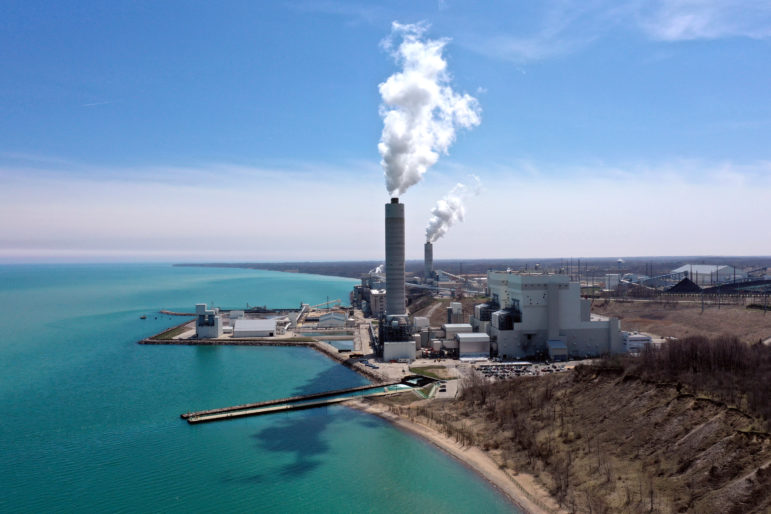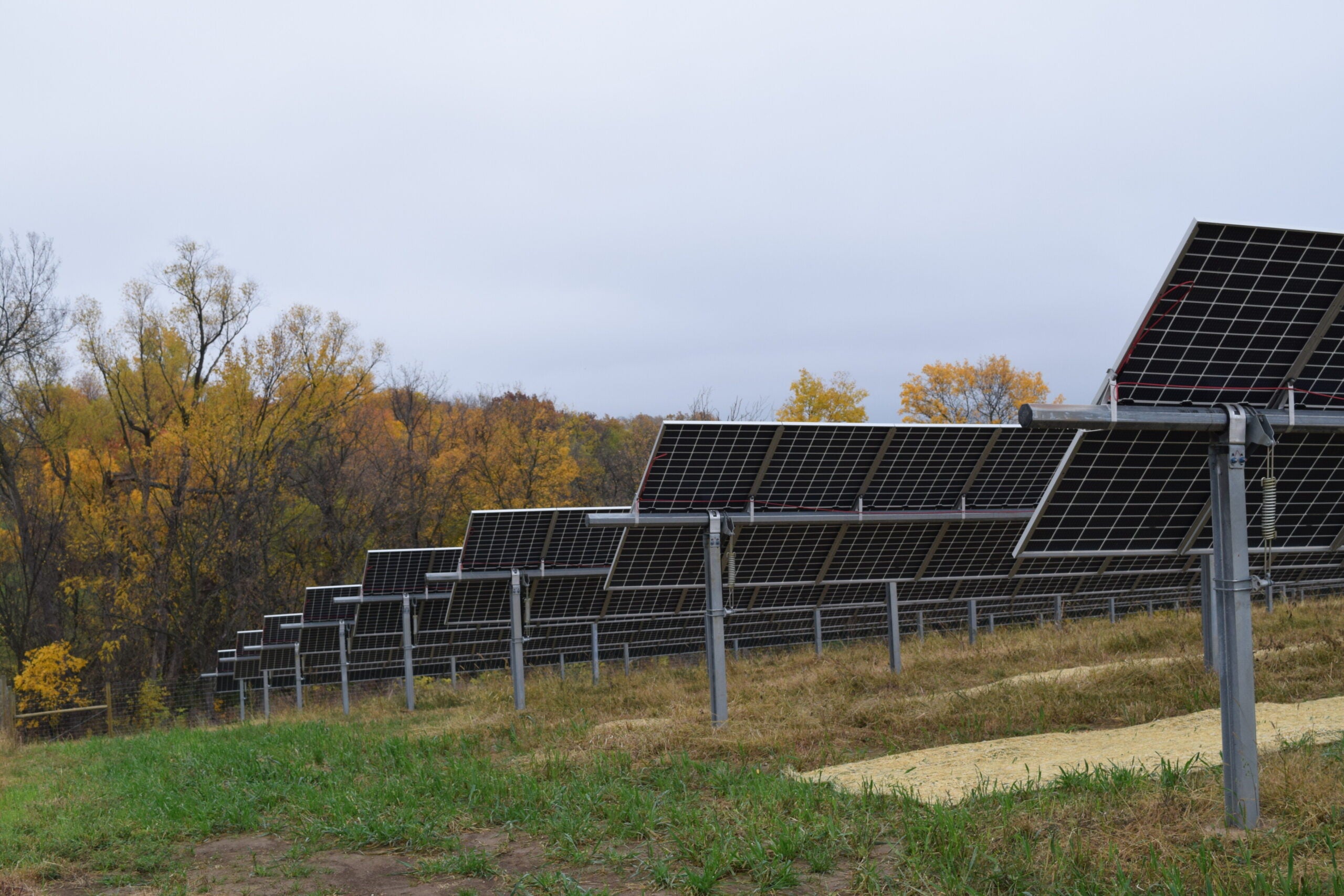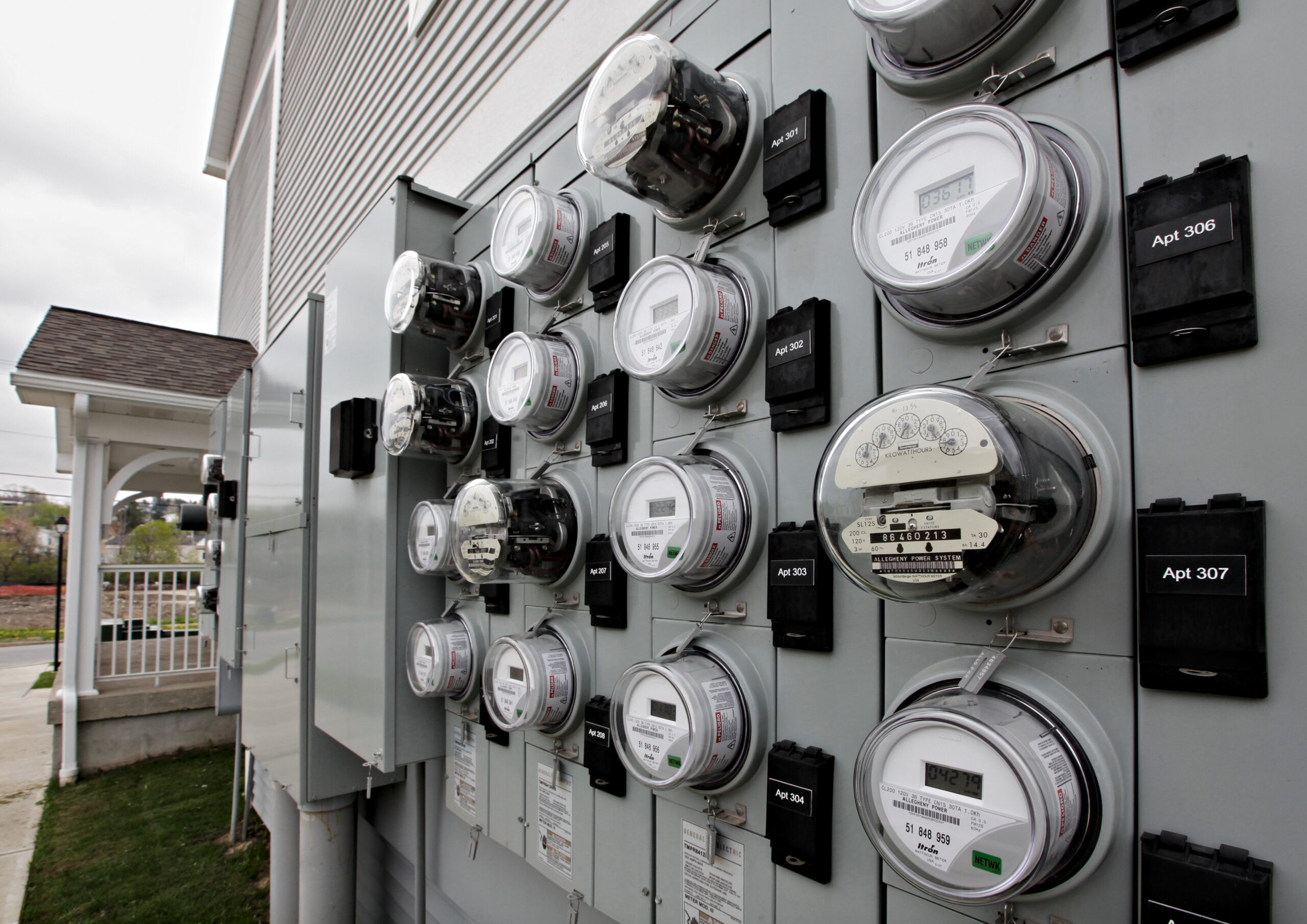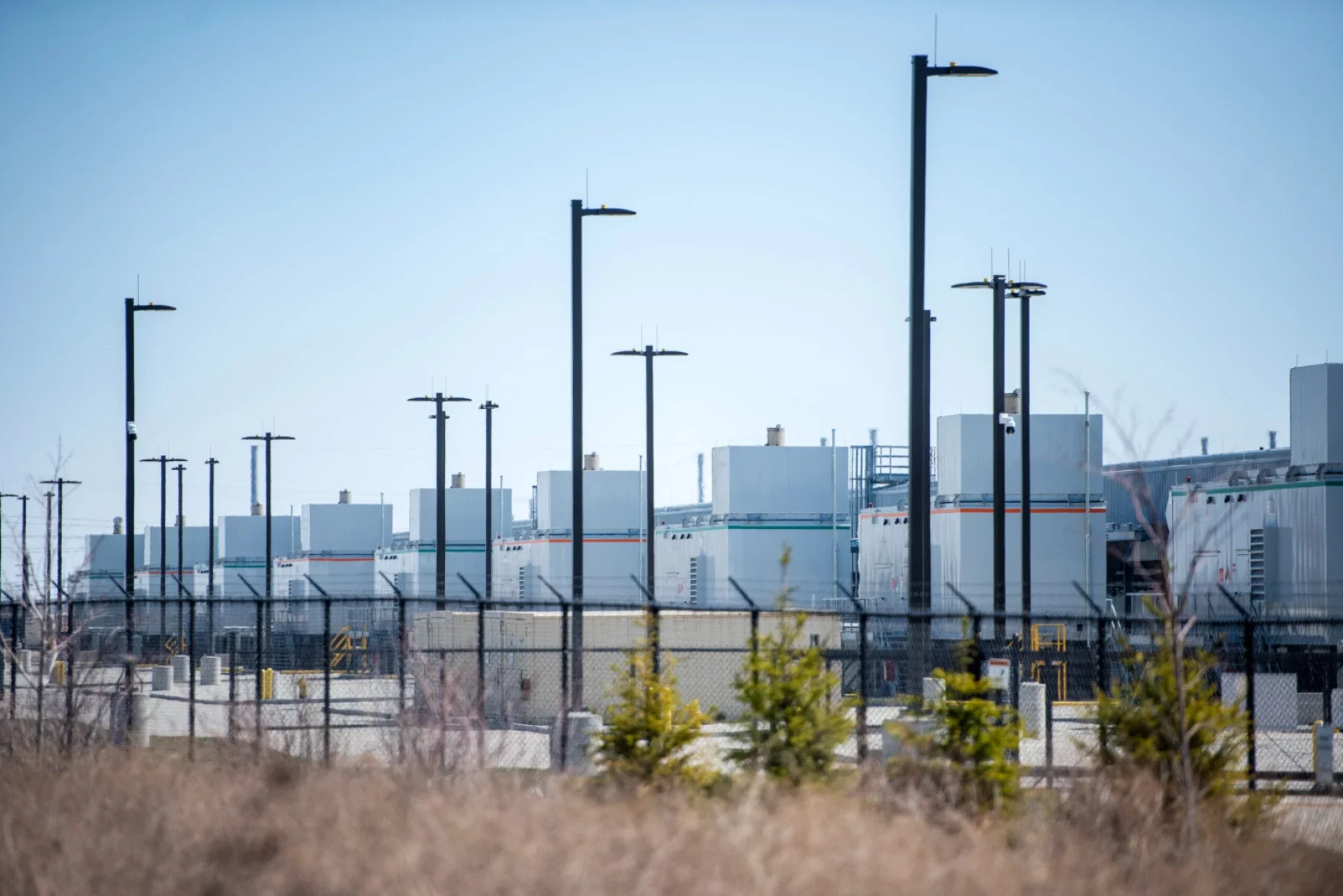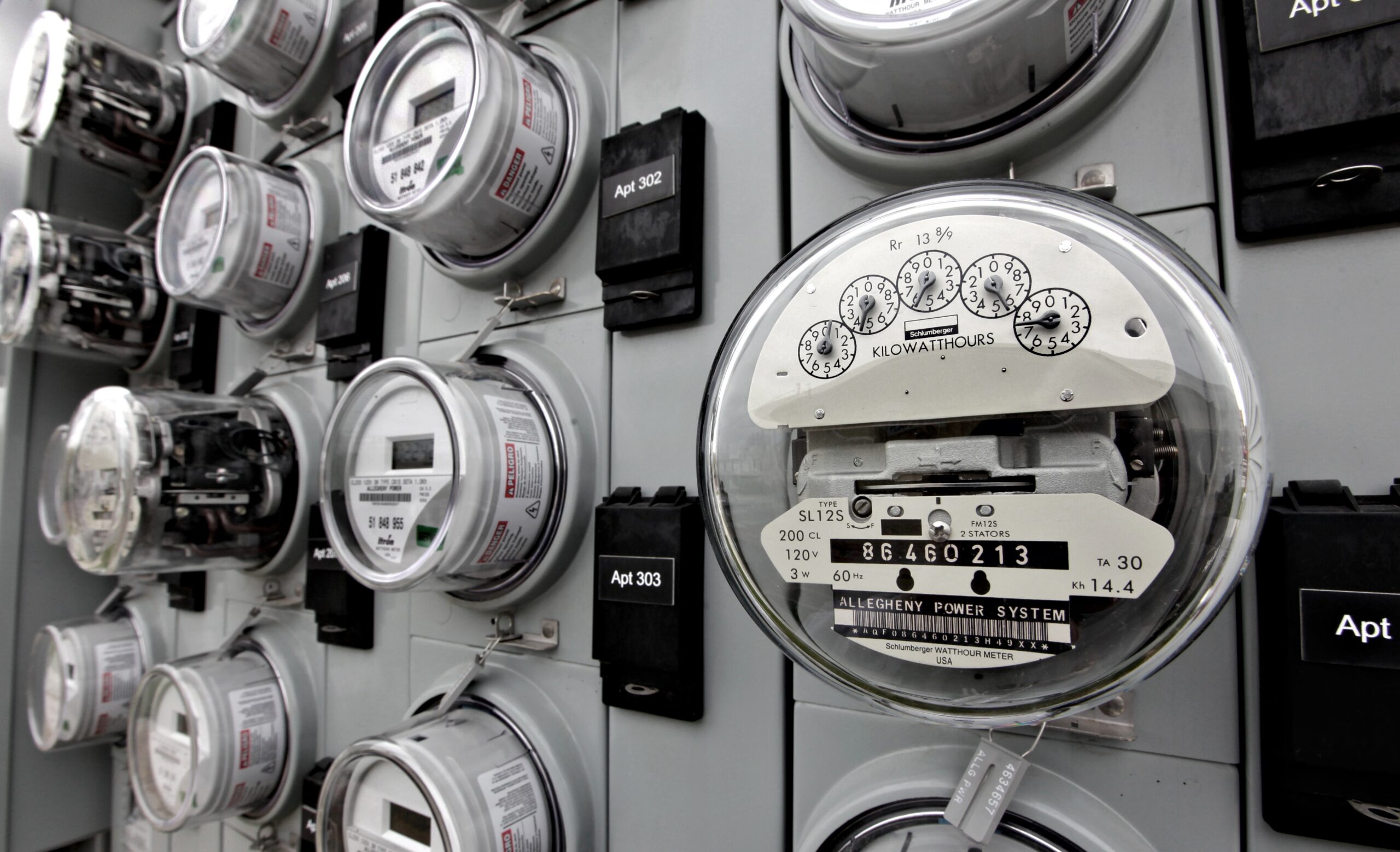Two of Wisconsin’s largest utilities have reached a deal to recover half a billion dollars from customers through higher rates next year due largely to rising inflation, natural gas prices and costs tied to their clean energy transition.
We Energies and Wisconsin Public Service filed the proposed settlement Monday with the Wisconsin Public Service Commission. The utilities reached the deal with ratepayer and renewable advocacy groups, labor unions and businesses intervening in utilities’ requests to increase rates next year.
Under the settlement, the utilities would recover more than $507 million in expenses next year. We Energies would refinance $100 million of roughly $500 million that’s yet to be paid off from investments in pollution controls at the Oak Creek power plant. The deal also writes off customer late fees from the COVID-19 pandemic, reduces fixed monthly charges for ratepayers and extends a low-income forgiveness program.
News with a little more humanity
WPR’s “Wisconsin Today” newsletter keeps you connected to the state you love without feeling overwhelmed. No paywall. No agenda. No corporate filter.
“We think that this settlement is a real positive step forward for our customers. It’s a balanced approach to resolving the major issues in these various rate cases,” said Brendan Conway, the utilities’ spokesperson. “It allows us to continue our efforts to build a bright, sustainable future (and) provides customers with affordable, reliable and clean energy now and in the future.”
The utilities would recoup that $507 million next year through rate increases for consumers. We Energies is proposing to raise electric rates by 8.4 percent and natural gas rates by 10.7 percent beginning next year. WPS wants to increase electric rates 6.2 percent and natural gas rates by 8.3 percent.
According to the utilities, the rate hikes are largely tied to around $1.5 billion of investment in clean energy projects through next year. At the same time, utilities and customers are facing financial pressures related to soaring inflation and natural gas prices.
The settlement contains significant benefits for customers, according to ratepayer advocate the Citizens Utility Board. Tom Content, the board’s executive director, said that includes refinancing the remaining balance on the Oak Creek coal plant and a discount rate for low-income ratepayers on their bills as part of a new pilot program.
“There are cost increases that can’t be controlled, but there are significant savings opportunities in here,” said Content. “It leaves us the ability to continue to fight on the issue of high utility profits that have been too high for too long and are costing customers billions of dollars around the country every year.”
Content said a recent study by the Energy Institute at the University of California – Berkley found utility customers nationwide paid $2 billion to $8 billion per year more than necessary on utility profits. The ratepayer group has proposed lowering profit rates for We Energies from 10.2 percent to 9 percent and 10 percent to 9.1 percent for WPS. Those rates are lower than what commission staff have proposed.
The PSC will have the final say over the proposed settlement, as well as utilities’ profit rates and how those costs will be spread among residential and industrial customers.
The deal would:
- Lower fixed monthly charges for WPS customers from $21 to $19. We Energies plans to decrease its monthly charge from $16 to $15 in 2023.
- Save customers $16.9 million in late fees and other charges deferred during the COVID-19 pandemic next year for a total savings of roughly $34 million over two years.
- Simplify metering that measures energy delivered for customer-owned solar systems.
Related to metering, Michael Vickerman with RENEW Wisconsin said the settlement removes a requirement for customer-owned solar systems to use two meters. Currently, one meter measures electricity produced by the system while another measures power coming from the utility in We Energies service territory.
“There are advantages of using just a single meter. The installation doesn’t take as long. It’s usually less costly,” said Vickerman, policy director for RENEW.
In addition, Vickerman said the deal brings WPS in line with the way other utilities in the state measure net metering for solar systems. Net metering is a billing mechanism that credits solar system owners for electricity they add to the power grid, and Wisconsin allows net metering for systems up to 20 kilowatts.
Most parties involved in the rate cases agreed to the deal, but Clean Wisconsin and Walnut Way Conservation Corp. had not signed the agreement as of Monday. Antonio Butts, executive director for Walnut Way, said there’s a strong possibility the Milwaukee nonprofit will object to the settlement. He said negotiations didn’t include the group and residents they represent in the city’s Lindsay Heights neighborhood.
“At this particular time, it really is being advanced without consideration for current events and circumstances that ratepayers are experiencing in daily life,” said Butts. “We already know we have a situation where some ratepayers will be disproportionately, you know, adversely affected by a rate increase at this time.”
In a commission filing, the group states around 90 percent of Lindsay Heights residents are Black and almost half live in poverty, earning less than half the national average. Butts said the rate hike proposed by We Energies would force community members to trade off which necessities they can afford to pay whether that’s energy, food, or healthcare. He also said investments in renewables aren’t located where low-income residents reside, depriving them of benefits from those developments.
WEC Energy Group, which owns the two utilities, has said its projects and coal plant retirements are expected to save customers $1 billion over the next two decades.
Conway, We Energies spokesperson, said the utility met with Walnut Way recently to discuss the group’s concerns, adding all parties were part of negotiations. He said We Energies will continue to work through the process to reach an equitable solution for all.
The public can comment on the proposed rate hikes online, and public hearings will be held in November for WPS and We Energies customers. The PSC is anticipated to vote on the settlement the same month.
Editor’s note: The Citizens Utility Board and RENEW Wisconsin are underwriters of Wisconsin Public Radio.
Wisconsin Public Radio, © Copyright 2026, Board of Regents of the University of Wisconsin System and Wisconsin Educational Communications Board.

